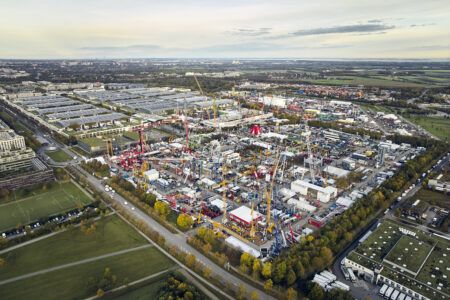The construction industry faces many challenges daily, but one that must be addressed is the slow adaptation of new processes to help make sure that projects are efficient. A sector that construction can look to for inspiration is retail, where new strategies are constantly being implemented to meet consumer demands and stay current to meet expectations. Wincanton, an expert in construction logistics, has identified six strategies that the construction industry can take from retail and incorporate to push the industry forward
***
Embracing emerging technologies
A key factor for construction falling behind other industries is the failure to understand and adopt new technologies. Retail has added artificial intelligence (AI), the Internet of Things (IoT), and advanced data analytics to streamline monotonous operations such as optimising delivery routes and managing stock.
Similar investment into these technologies could significantly impact the construction sector. Many processes within the sector are still done through paper processes, which can be arduous and slow projects down. However, adding modern tech can help project management be more centralised into a single curated platform, increasing progress visibility and reducing deadline delays.
Optimising the supply chain for efficiency
Within retail logistics, the biggest concern is ensuring that consumers’ buying experience is seamless. Customers receive real-time updates on the delivery status from the moment of purchase. This is something that infrastructure projects can take inspiration from with data-driven insights.
These insights can provide a much more efficient solution to supply chains, from the very beginning with procurement to managing the inventory available and minimising delays from shortages of materials. A more proactive approach, like breaking down the data gathered about processes within construction companies, can ensure that projects are executed with attention to scheduling like retail orders are.
Customer-centric processes
Businesses in retail rely on understanding and responding to customers and their changing needs, which is done through extensive feedback and review systems from on-site options to third-party sites like Yelp or Google Reviews. This is something that construction could adapt to reap the benefits through transparent communication with clients and making sure they’re involved in decision-making.
Placing clients at the heart of construction’s mission can help to develop long-term relationships and establish loyalty within these transactions. This is a huge factor in consumer behaviour that leads them to repeat purchases from chosen retailers, and the construction industry could gain a lot of fantastic business from it.
Transparency and live updates
Both site managers and consumers can easily track their orders and deliveries to know exactly when to expect their products and materials. Not only this but having added transparency and live updates can help increase communication on all levels of the project.
Internally, this can mean workers on the project can be alerted to any issues that might arise with delayed delivery of materials, machine breakdowns, or anything that could cause a workday to be slowed down. This extends externally, as clients can make more informed decisions on the project through improved visibility. It also contributes to loyalty and trust being built between the business and the client.
Planning and forecasting
The retail industry constantly has to plan and forecast for major calendar events, adjusting product stocks and inventory based on previous sales data and statistics. Construction has various industry elements that could benefit from greater forecasting for large-scale projects using data gathered from jobs of similar sizes.
This will also allow for better preparation when it comes to holidays and seasons, where more work is seen. For example, if you’re expecting to see more projects commissioned in the summertime when the weather is better (so less downtime from rain and adverse weather), businesses in the industry can order materials well in advance to be ready to get straight to work.
Management and sustained improvement
While change is necessary for industries to continue advancing, maintaining the level of improvement while also delivering exactly what construction projects require is crucial. This is something that retail has shown to be capable of, constantly incorporating and exploring new technologies, training schemes, quality control methods, and many other elements to keep delivering consumers seamless shopping experiences.
By being adaptable to market trends and demands, the construction industry can add flexibility to projects of all sizes.





